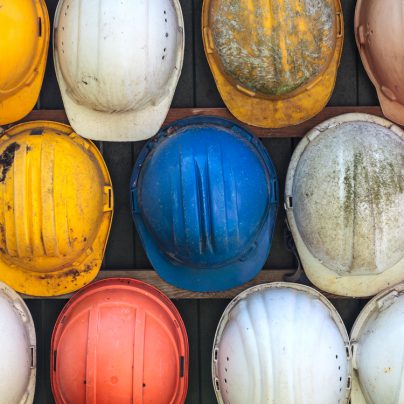In the macho world of construction, discussions about “wellbeing” seem out of place. After all, seasoned construction workers should be able to deal with health issues, bravely soldiering on until payday.
But the truth is that health is important for all employees, regardless of which industry they work in. Which is why construction companies need to take a more proactive lead in managing worker wellbeing.
Let’s consider the numbers
Statistics from the HSE suggest that construction is a particularly dangerous industry for employees. Although just 5% of the total UK workforce are in construction, these workers account for 27% of all workplace fatalities, and 10% of reported major injuries. They are also 100x more likely to die from a disease – like Silicosis or Asbestosis – as a result of their job.
The health impact of working in construction is long-term – 54% of male construction workers do not reach a working age of 60 in the industry, and 56% of all male cancers are caused by working in construction.
Employers are making improvements – but employees are still falling ill and dying from avoidable factors.
Health from an employer’s viewpoint
The cost in terms of human life is shocking, but from a financial standpoint, some employers may be tempted to keep health spend as low as possible. From the short-term view of the balance sheet, it makes sense to restrict expenditure to the bare essentials – but this could be storing up problems for the future.
Sickness and absenteeism
Whenever a worker is injured or contracts a serious illness, they will need to take time off to recover. Obviously, this presents a series of problems:
- Productivity will drop while your employee recovers.
- If the worker needs to be replaced, you will incur extra hiring and salary costs for a contractor.
- Your worker may be entitled to sick pay and compensation where your business is found to be at fault.
Losing employees for any reason adds to the cost of a project. If margins are already stretched, can you afford to absorb those additional expenses?
Presenteeism
Almost as costly as having employees taking time off is the scourge of presenteeism. Your workers may think they are doing you a favour by turning up to work when not in the best of health – but they are not.
Sick or injured workers are less productive – and risk worsening their condition in the process. In many cases taking time off to recover may be less damaging to productivity than having them “soldier on” at reduced capacity.
Presenteeism is a British cultural phenomenon whereby being seen at work is considered as important as actually doing work. A truly healthy construction force will be encouraged to take time off after an injury to recover – even if it does add to project costs.
Start thinking long term
Instead of worrying about workers being off sick, employers should instead be planning to reduce instances of sickness and injury. In most cases, this means strengthening existing health and safety risk assessments to prevent injury or exposure to factors likely to cause illness.
Many employers are also beginning to consider employee wellbeing – health factors that are not directly related to work itself. Wellbeing provisions are not a legal requirement, but they can significantly improve the overall health – and performance – of employees.
What are these wellbeing factors?
Employees affected by substance abuse are just one example of a condition where employers can help, even if it is not directly related to the job. An alcoholic bricklayer is unlikely to perform well at work – and could present a significant risk to themselves and their colleagues for instance.
Similarly, employees affected by mental health issues will also struggle to cope at work. One report suggests that construction workers are six times more likely to die from suicide than fall from a height, indicating just how common depression and related conditions are in the workforce.
Although not required, constructions firms should consider putting measures in place to help workers deal with non-work related conditions. By improving their overall health, these employees will be more productive – providing a reasonable return on investment.
Wellbeing programs are also very attractive to would-be employees. Any construction firm that demonstrates it is committed to caring for its employees will find it much easier to attract the very best talent – which boosts productivity and profitability in the long run.
Obviously, there are financial implications associated with wellbeing programs, but the returns may be the justification you need to make the additional investment.
For more help and advice about employee wellbeing, and construction health and safety, please get in touch


